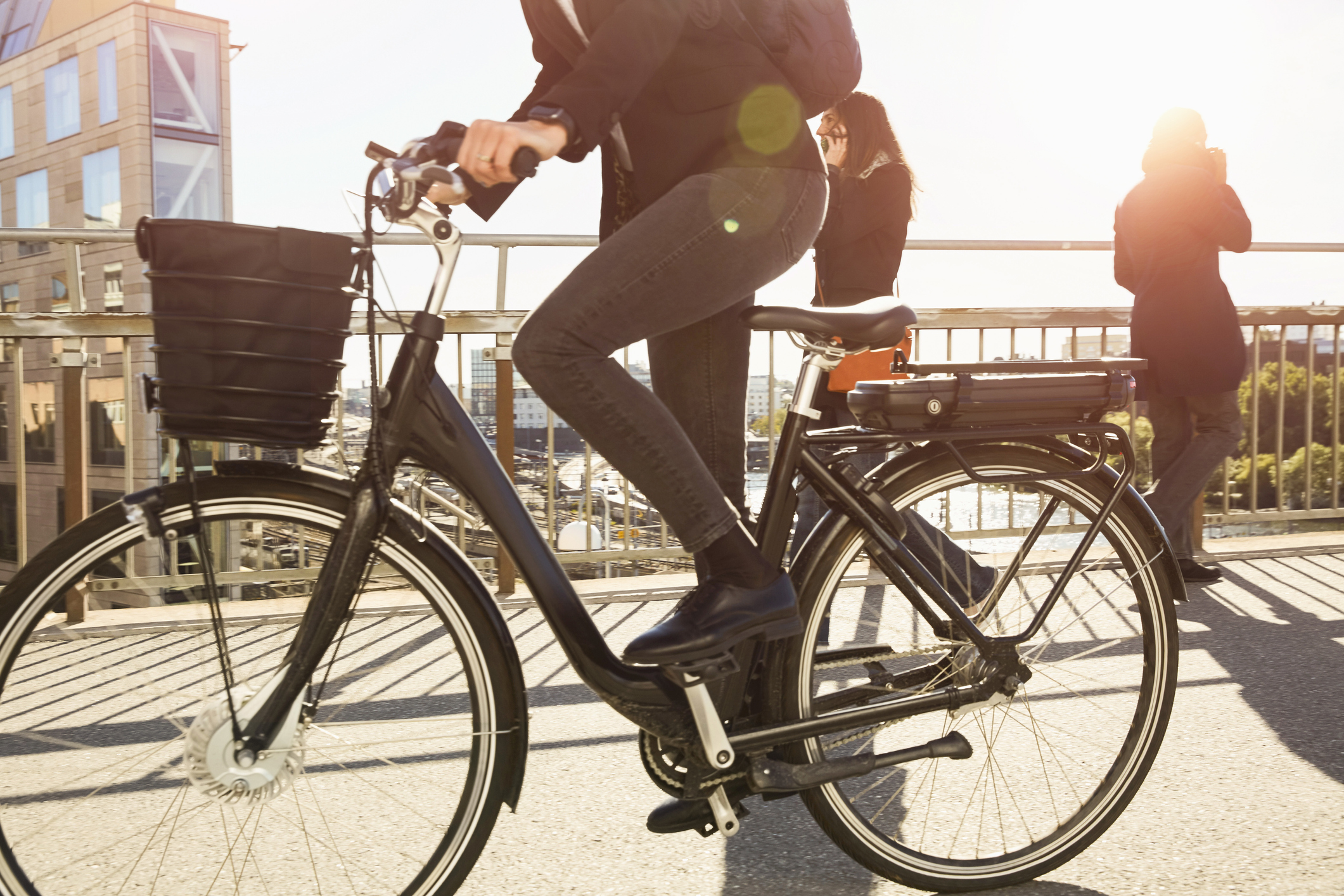The government should make ebikes cheaper, not more powerful, if they want more people on bikes
No one with any real interest in seeing an uptake in cycling in the UK has called for the changes, argues advocacy expert Sam Jones


What do ebikes need to make them popular? According to the government they need bigger wattage and less pedalling. At least that’s the picture painted in the Department for Transport’s (DfT) latest consultation on the regulation of ebikes published today.
There are two proposals: double the legal wattage of ebike motors from 250w to 500w, and include a ‘twist and go’ throttle which would propel the bike without pedalling.
Neither of these measures are currently illegal, but if you’ve got them on your ebike then it’s no longer technically a bicycle, but rather an electric motorbike. That means you need a heavy motorcycle helmet, registration plates, insurance and cannot use cycle lanes if you want to ride it on our roads.
It appears government proposals would remove the barriers of less power and pedalling – but why?
"Call me a pedant, but pedalling seems to be the main defining act of cycling."
The consultation document states the reasoning as: "The overriding rationale is to make EAPCs (electric assist pedal cycles - aka - ebikes) a more attractive and viable travel option for more people."
The sticking point here is that no one with any real interest in seeing an uptake in cycling in the UK has called for the changes, and in fact the second feature pretty much means you don’t need to pedal. Call me a pedant, but pedalling seems to be the main defining act of cycling.
Until recently I was working at a national level in cycling policy and communications, and rumours as far back as last summer seemed to indicate special advisors to ministers wanted to increase wattage and stop pedalling.
The latest race content, interviews, features, reviews and expert buying guides, direct to your inbox!
The industry was clear: it neither wanted nor needed the changes. Organisations promoting cycling in the UK saw it as unhelpful, and likely to reduce the health benefits that come with pedalling. To cap it off, it’s also highly likely DfT officials working on government cycling policy saw it as a headache they could do without.
Peter Eland, technical and policy director at the Bicycle Association, which has long stood against proposed changes to current legislation, sees the suggested 'progression' as potentially disastrous for the future of ebikes.
"These proposals put at risk the whole appeal of ebikes - a key part of which is the light touch bureaucracy that goes with ebike ownership and use, in contrast to mopeds which fall under motor vehicle regulations," he commented.
"If you boost the power and remove the need to pedal, this creates a very different vehicle from what we currently know as a road legal ebike. We could end up with something closer to a moped than to a bicycle in character. The risk is then that regulations are put in to match this more moped-like performance - and the current ‘enhanced bicycle’ status of ebikes, which justifies their treatment as cycles rather than motor vehicles, would be lost," is his sum-up of the objections.

Another reason for making 'twist and go' legal is that it "could enable some disabled people to use EAPCs as a mobility aid." You have to wonder if the government listened to anyone working in this area.
Talking to director of inclusive cycling charity Wheels for Wellbeing - Isabelle Clement - it would seem not. She pointed out throttles up to 4mph are already legal and questioned whether a blanket approach to increasing the speed limit to 15.5mph is necessary.
Instead, Clement suggested a wider roll out and awareness of cycles which have throttle power up to 4mph - and which give assistance when there’s pressure on torque-assist pedals or as soon as movement starts - would help older and disabled people, not new legislation.
Ebike sales are in fact on the increase in the UK. They make up nearly a third of all new sales in the UK, by value. In Europe they’re even more popular with ebikes making up nearly 50% of sales and countries like France and Italy offering substantial subsidies to encourage people to buy them.
Interest and uptake is not going to wane any time soon with current regulations – and government proposals could actually be more damaging in the long run.
The real barriers: price and risk of fire
If there are two real barriers to their wider uptake it’s not power or throttles, it’s price and risk of fire [the latter was subject to an in-depth investigation published in Cycling Weekly magazine on Feb 22, online readers will have access to this from March 5 - Ed].
Unless you’re happy with a bicycle shaped object with an e-assist (a sure way to put anyone off cycling), prices for a reasonable ebike that you wouldn’t mind riding regularly are in excess of £750.
However you look at it, £750 is a lot of money for a lot of people, especially those who might not be regular riders. There is of course the Cycle to Work scheme, but if you’re unemployed, freelancing, on minimum wage, retired or unable to work due to poor health that scheme won’t work for you. Arguably all these groups of people would benefit too from access to an ebike (and, some of them can - through schemes such as Cycling UK’s, but it’s a postcode lottery).

The high cost is arguably one of the leading reasons why reports of fires related to ebike batteries are on the increase, and causing concern among potential new riders. As a London Fire Brigade spokesperson noted in a call for consumers to shop with reputable brands only, "many of the fires we are seeing involve batteries which have been sourced on the internet, which may not meet the correct safety standards."
For the legitimate cycling industry operating within standardised safety measures, these stories aren’t just heartbreaking, but also an issue they want to see resolved with the greatest urgency.
How to solve these problems?
Well if the French government can offer discounts for individuals from €300 to €2000, depending on one’s financial situation, and Italy can do similar with a €5,000,000 fund allowing applicants to get up €750 off a bike – then surely we can do something a bit more constructive than boosting a battery’s wattage.
Governments across the UK could and should consider similar subsidy schemes, as the benefits from less congestion to a more active population would soon pay off the relatively small amount they’d need to invest.
Turning to the risk of fires - that’s really where legislation is needed, and close co-operation with industry and fire services to introduce practical measures. The Bicycle Association, fire services and electrical safety bodies are keen to work on this, but instead the government gives them a consultation on throttles and wattage.
It’s hard to tell what the thinking is behind this consultation, but it’s clear it’s not about getting more people cycling.
Share your views
When approached for comment on the consultation, a spokesperson from the DfT said: "We’re launching this consultation to gather views on how we can increase power safely for certain users, including those with mobility issues and e-cargo bike operators. Safety is always at the heart of any decisions made around e-bikes and the results of the consultation will be published followings its closure."
The DfT believes that the proposals will make for easier use by riders with mobility issues, and a potential increase in e-cargo bike operators.
The consultation closes on 25 April, at 11.59pm. You can give your views here.
Sam Jones has worked for nearly 10 years in cycling advocacy and communications. Formerly the Cape Wrath Fellowship custodian, he is a freelance commentator on cycling issues who works in the Surrey Hills on countryside access issues. A keen bikepacker he can be found riding what the UK would like to think is gravel but is actually mostly mud.
